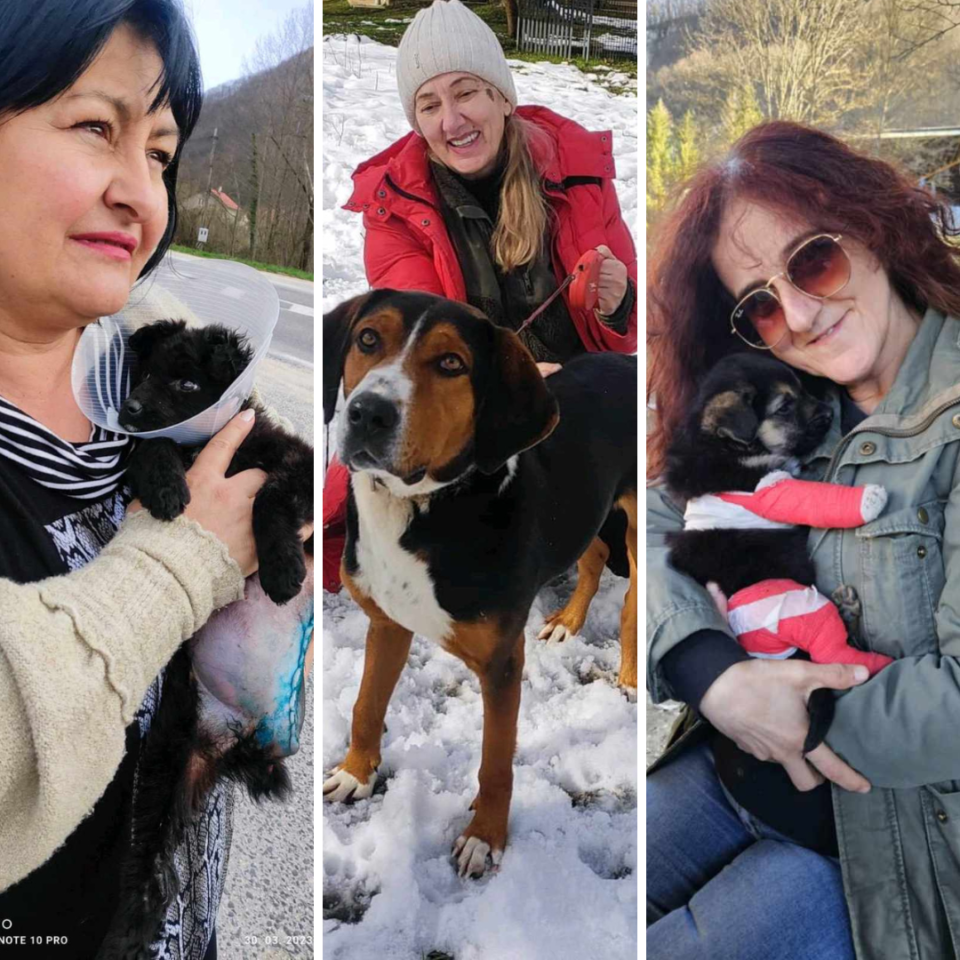
Many heroic stories unfold right in our immediate community. Unfortunately, however, with the flood of negative news, these stories often get swept aside.
Positive stories bring a dose of humanity into our everyday life and can help pry our minds away from negative topics. One such story is about the founder of the Jajce Dog Lovers Association. Over the years, this organization has given much more than free time to help stray dogs.
While the association was formally established in 2018, their story really began two years earlier, when they began feeding local stray dogs in an organized manner. In the very beginning, the association was able to rescue about three to four dogs a month, but today, after nine years of work, they have up to 120 dogs.
It all started with the creation of a Facebook page where they posted pictures of stray dogs looking for new homes. Over time, they gained recognition for their contribution to the community, but a sustainable long-term solution has yet to be found for the problem of abandoned dogs in Jajce.
“Today I’m proud of all our volunteers and partners. Unlike at the very beginning, it’s clear that the level of awareness about caring for abandoned dogs has grown among our fellow citizens, which we are really pleased about,” says Olivera Burek, one of the founders of the Jajce Dog Lovers Association.
Human Carelessness and Neglect
Since their operations began, they have had four steady volunteers, who are helped by other volunteers and ordinary citizens. The association’s daily activities include locating and feeding abandoned dogs, publishing their pictures on the association’s Facebook page, and fostering these dogs and providing them a safe home. Together with Jajce Municipality and the local veterinary clinic, they organized a spay and neuter campaign to help control the stray dog population. Local citizens also had the opportunity to spay and neuter their pets for free, in order to cut down on new litters of stray dogs in the city.
Although a lot has been achieved, greater success requires more concern from local authorities and the general public.

“It’s very difficult to work without donations. While we often cover huge costs with our own funds, we could certainly do a lot more if we had the support of the authorities and if we had more donors. All the dogs on the street are the result of human carelessness, neglect, and insensitivity. That is the only culprit behind the existence of stray dogs,” says Olivera.
The Jajce Dog Lovers Association, in partnership with the organization World of Dogs, rescued more than 340 dogs in three years, while independently, they have rescued around 200 dogs from the streets of Jajce. Olivera mentioned several other organizations with whom they have had partnerships.
“The Šapa Association from Banja Luka found homes for another 200 dogs from our streets through the Zampak del Coure organization from Italy. We also now have excellent cooperation with our friends Ajla and Amila Abazovski, who take in abandoned dogs from us, and, in partnership with the Czech organization Nebelvira, they have found homes for over 120 dogs in the Czech Republic,” explains Olivera.
The Need for Law Enforcement
As is often the case, individual enthusiasm alone is insufficient. A key issue driving the stray dog problem is the failure to enforce the law on the protection and welfare of animals, which would hold negligent owners responsible. Olivera believes harsh penalties and local law enforcement efforts on the ground would greatly improve the overall situation. Jasminka Gerstner, founder of World of Dogs, shares a similar opinion.
“I believe it’s crucial to find a long-term solution that includes the mass spaying and neutering of street dogs. Strengthening awareness about responsible pet ownership is also a priority in order to reduce the number of abandoned animals. Then, improving the system for catching, caring for, and, most importantly, adopting abandoned dogs, and finally, strict monitoring and sanctioning of irresponsible owners,” concludes Jasminka.

Although they have rescued hundreds of dogs and rehomed them in places from Jajce to across Europe, the fact remains that the humanity of a few individuals cannot permanently compensate for decades of systematic failures. The story of Olivera and Jasminka is not only an example of dedication, but also a call for collective responsibility on this issue. This obligation must be shared by all—not just a few individuals who cannot tolerate the suffering of animals on our streets.






